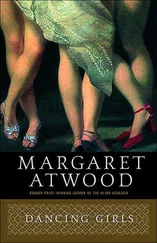A kinder thing to be allowed to kill. And that was it, exactly. They had not been allowed to kill.
For you couldn’t kill with a pop-gun that shot out plastic pellets of liquid that burst on contact, with the liquid running down like blood for the sake of realism. And you couldn’t kill with a gun that went most admirably through all the motions of chattering and smoking and flashing out red fire, but with nothing lethal in it.
And was this entire battle bowl no more than a toy set with robots that came apart at the right and most dramatic moments and then could be put back together at a later time? Were the artillery and the total-conversion bombs toy things as well, with a lot of flash and noise and perhaps a few well-placed items to plow up the battlefield, but without the power to really hurt a robot?
The bishop said, “Paxton, I feel like an utter fool.” And he added other words which a real bishop could never bring himself to say, making very clear just what kind of obscene fool he was.
“Let’s get out of here,” said Paxton shortly, feeling like that same kind of fool himself.
“I wonder…” said the bishop.
“Forget about it,” Paxton growled. “Let’s just get out of here. Pertwee will be opening up…”
But he didn’t finish what he was about to say, for he realized that even if Pertwee did open up, there’d be little danger. And there wasn’t any chance that Pertwee would open up, for it would know that they were here.
Like a metal monitor watching over a group of rebellious children—rebellious because they weren’t adult yet. Watching them and letting them go ahead and play so long as they were in no danger of drowning or of falling off a roof or some other reckless thing. And then interfering only just enough to save their silly necks. Perhaps even encouraging them to play so they’d work off their rebelliousness—joining in the game in the typically human tradition of let’s pretend.
Like monitors watching over children, letting them develop, allowing them to express their foolish little selves, not standing in the way of whatever childish importance they could muster up, encouraging them to think they were sufficient to themselves.
Paxton started for the door, plodding along, the bishop in his bedraggled robes stumbling along behind him.
When they were a hundred feet away, the door started sliding up and Pertwee stood there, waiting for them, not looking any different than it had before, but somehow seeming to have a new measure of importance.
They reached the door and sheepishly trailed through it, not looking right or left, casually and elaborately pretending that Pertwee was not there.
“Gentlemen,” said Pertwee, “don’t you want to play?”
“No,” Paxton said. “No, thank you. I can’t speak for both of us—”
“Yes, you can, friend,” the bishop put in. “Go right ahead.”
“My friend and I have done all the playing we care to do,” said Paxton. “It was good of you to make sure we didn’t get hurt.”
Pertwee managed to look puzzled. “But why should anybody be allowed to get hurt? It was only a game.”
“So we’ve discovered. Which way is out?”
“Why,” said the robot, “any way but back.”
Originally sold as “All the Sad Stories,” this story first appeared in the February 1960 issue of Galaxy Magazine . Horace Gold accepted the story for publication just eight days after Cliff Simak mailed it to him. It fits tidily into that species of Simak story that portrays an alien coming to a small town (a town, as is common in Cliff’s stories, named Millville).
Worse than a case of the blind leading the blind is the case of the drunk leading the drunk.
—dww
It was Saturday evening and I was sitting on the stoop, working up a jag. I had my jug beside me, handy, and I was feeling good and fixing to feel better, when this alien and his robot came tramping up the driveway.
I knew right off it was an alien. It looked something like a man, but there weren’t any humans got robots trailing at their heels.
If I had been stone sober, I might have gagged a bit at the idea there was an alien coming up the driveway and done some arguing with myself. But I wasn’t sober—not entirely, that is.
So I said good evening and asked him to sit down and he thanked me and sat.
“You, too,” I said to the robot, moving over to make room.
“Let him stand,” the alien said. “He cannot sit. He is a mere machine.”
The robot clanked a gear at him, but that was all it said.
“Have a snort,” I said, picking up the jug, but the alien shook his head.
“I wouldn’t dare,” he said. “My metabolism.”
That was one of the double-jointed words I had acquaintance with. From working at Doc Abel’s sanitorium, I had picked up some of the medic lingo.
“That’s a dirty shame,” I said. “You don’t mind if I do?”
“Not at all,” the alien said.
So I had a long one. I felt the need of it.
I put down the jug and wiped my mouth and asked him if there was something I could get him. It seemed plain inhospitable for me to be sitting there, lapping up that liquor, and him not having any.
“You can tell me about this town,” the alien said. “I think you call it Millville.”
“That’s the name, all right. What you want to know about it?”
“All the sad stories,” said the robot, finally speaking up.
“He is correct,” the alien said, settling down in an attitude of pleasurable anticipation. “Tell me about the troubles and the tribulations.”
“Starting where?” I asked.
“How about yourself?”
“Me? I never have no troubles. I janitor all week at the sanitorium and I get drunk on Saturday. Then I sober up on Sunday so I can janitor another week. Believe me, mister,” I told him, “I haven’t got no troubles. I am sitting pretty. I have got it made.”
“But there must be people …”
“Oh, there are. You never saw so much complaining as there is in Millville. There ain’t nobody here except myself but has got a load of trouble. And it wouldn’t be so bad if they didn’t talk about it.”
“Tell me,” said the alien.
So I had another snort and then I told him about the Widow Frye, who lives just up the street. I told him how her life had been just one long suffering, with her husband running out on her when their boy was only three years old, and how she took in washing and worked her fingers to the bone to support the two of them, and the kid ain’t more than thirteen or fourteen when he steals this car and gets sent up for two years to the boys’ school over at Glen Lake.
“And that is all of it?” asked the alien.
“Well, in rough outline,” I said. “I didn’t put in none of the flourishes nor the grimy details, the way the widow would. You should hear her tell it.”
“Could you arrange it?”
“Arrange what?”
“To have her tell it to me.”
“I wouldn’t promise you,” I told him honestly. “The widow has a low opinion of me. She never speaks to me.”
“But I can’t understand.”
“She is a decent, church-going woman,” I explained, “and I am just a crummy bum. And I drink.”
“She doesn’t like drinking?”
“She thinks it is a sin.”
The alien sort of shivered. “I know. I guess all places are pretty much alike.”
“You have people like the Widow Frye?”
“Not exactly, but the attitude’s the same.”
“Well,” I said, after another snort, “I figure there is nothing else to do but bear up under it.”
“Would it be too much bother,” asked the alien, “to tell me another one?”
Читать дальше












